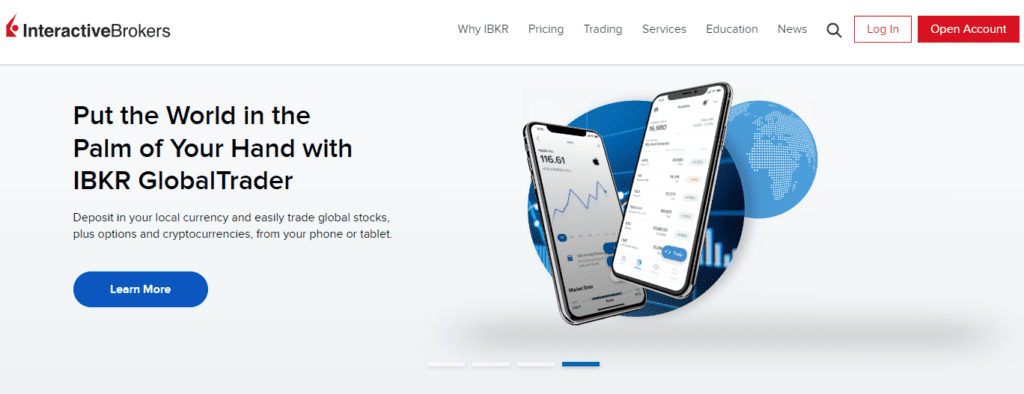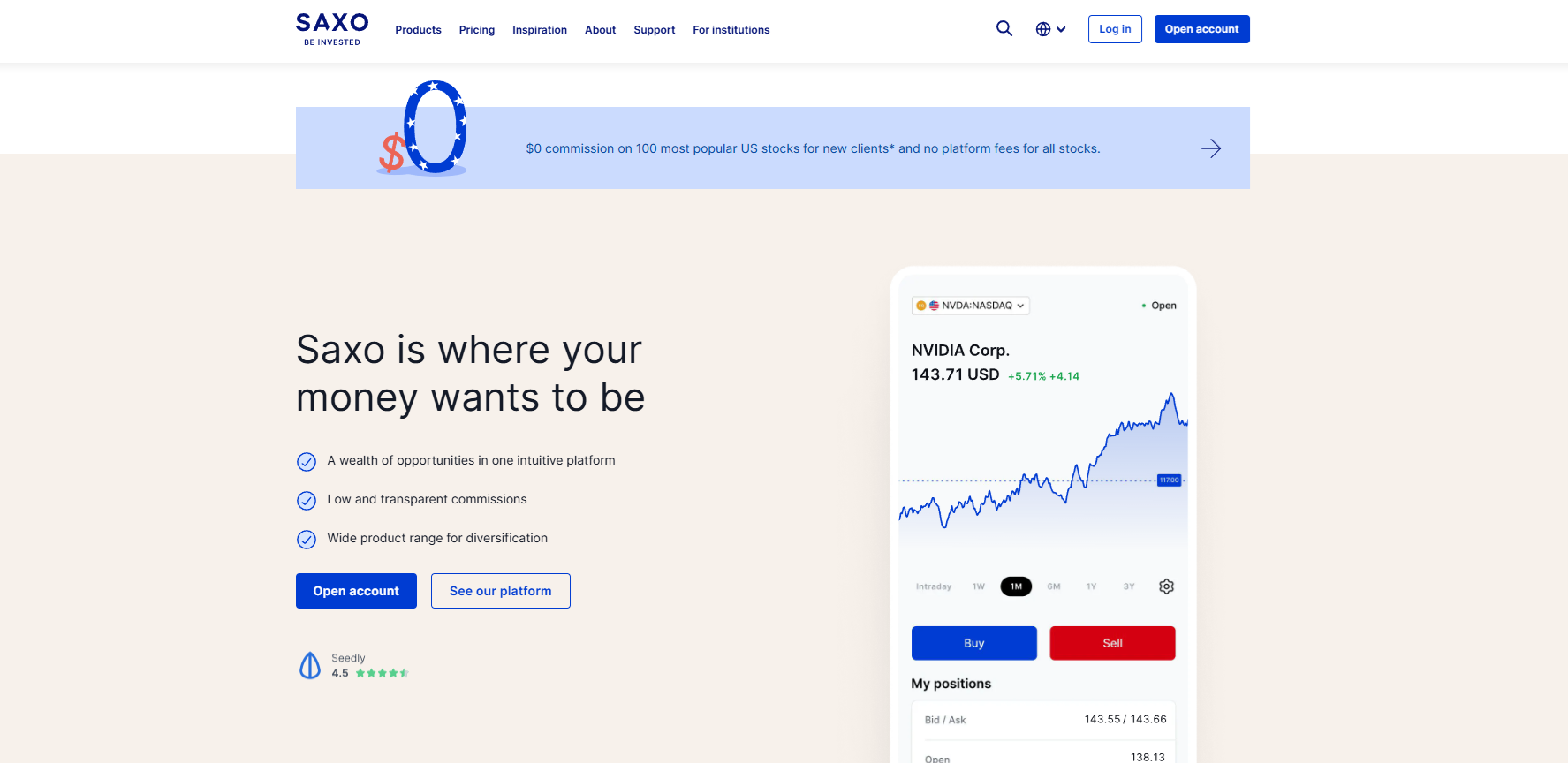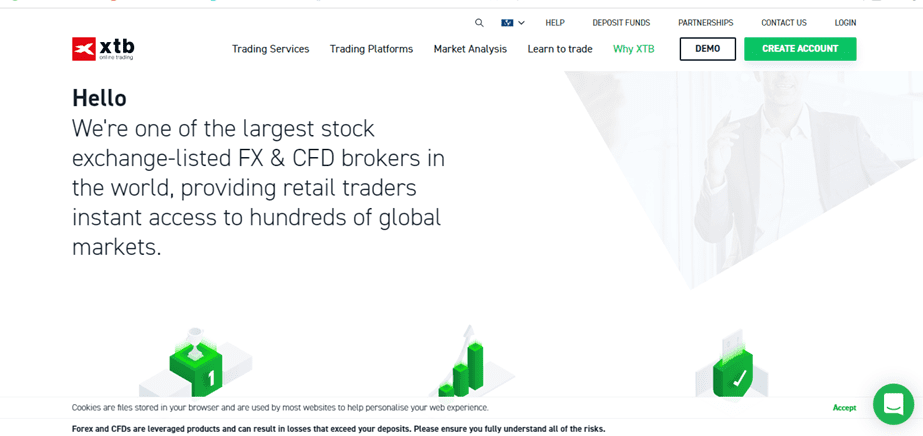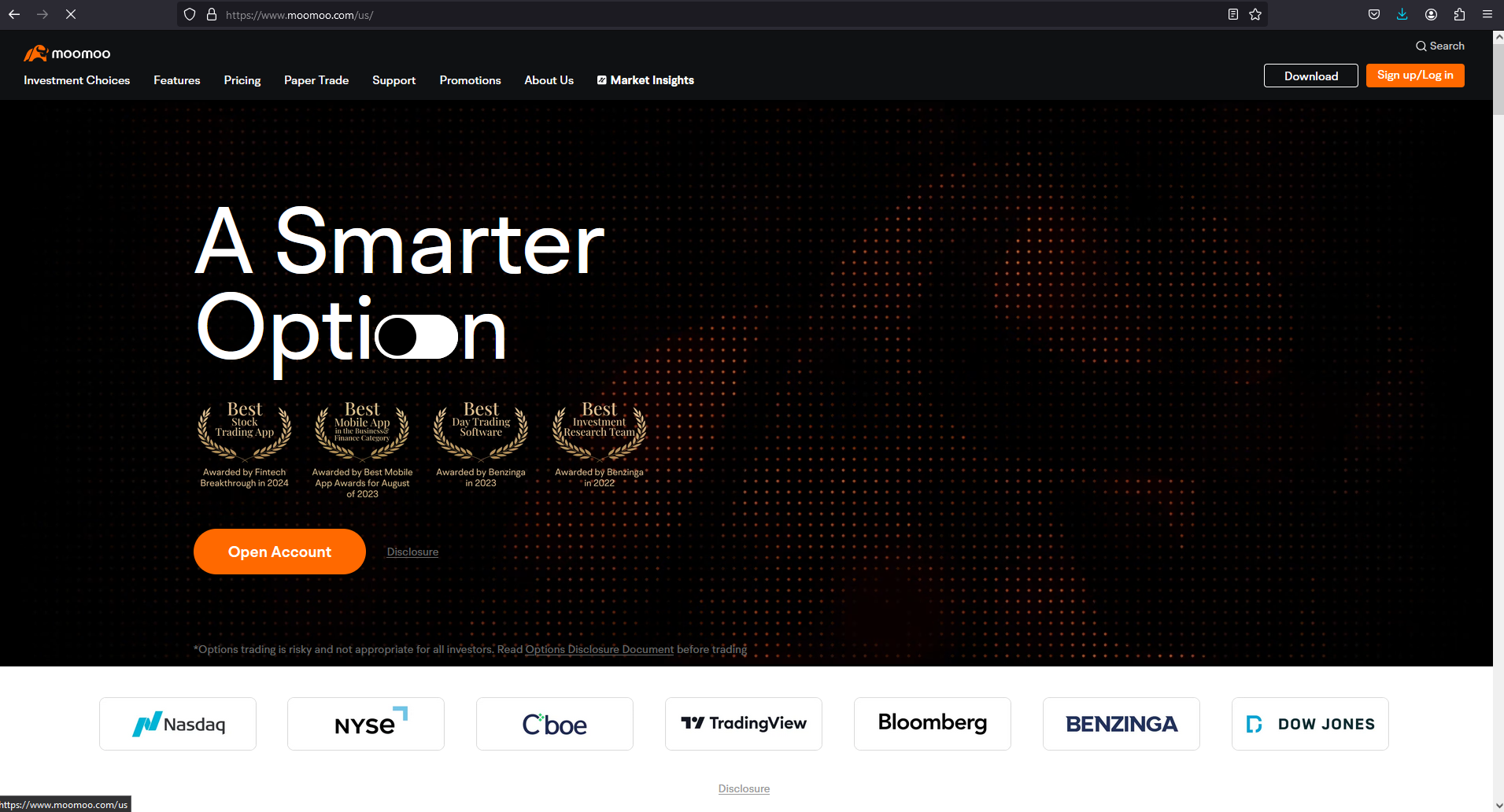Looking for the best trading platforms in Malaysia for 2024? You’re in the right place. With so many options available, picking the right online trading platform can feel overwhelming. Whether you’re into stock trading, forex trading, or just starting your investment journey, choosing the right platform makes a huge difference. From trading Malaysian stocks on Bursa Malaysia to exploring global markets, finding a platform with a user-friendly interface, real-time updates, and transparent fee structures is crucial. We’ve done the homework to help you focus on what matters—trading opportunities.
In this list, we’ll cover the most popular trading platforms for Malaysian investors, catering to both beginners and advanced traders. These platforms offer a wide range of tools like real-time market data, seamless currency conversion, and access to currency pairs for the forex market. Whether you’re managing a brokerage account or analyzing trading strategies, the platforms we highlight deliver top-notch features. With options designed to simplify processes like using the central depository system, you’ll have what you need to make informed investment decisions.
Why Choosing the Best Trading Platforms in Malaysia is Important
With so many investment options available, from stocks to crypto assets, picking the right platform can be the key difference in reaching your financial goals. Whether you’re a beginner looking to start investing or a long-term investor, the right platform should offer reliable tools, low fees, and robust security measures to protect your investments. The right platform should offer reliable tools, low fees, and robust security measures to protect your investments.
Here’s why the right platform matters:
- Security measures: Protecting your data and funds should be a priority when you start trading.
- Low fees: Look for platforms with reasonable charges, including commission fees, to maximize your profits.
- Wide investment opportunities: A good platform gives access to stocks, crypto assets, and more to suit your goals.
- Technical analysis tools: These help investors evaluate trends and improve trading strategies.
- User-friendly design: A simple interface ensures both new customers and seasoned traders can use it without hassle.
- Additional features: Some platforms offer perks like educational resources or demo accounts for practice.
- Trusted brokers: Make sure the platform works with reputable brokers for smooth transactions.
The 5 Best Trading Platforms in Malaysia
#1. Interactive Brokers
What is Interactive Brokers?
Interactive Brokers (IBKR) is a global brokerage firm offering low-cost access to a wide range of financial instruments, including stocks, options, futures, currencies, bonds, and funds, on over 135 markets worldwide. It is known for its sophisticated trading platforms, such as Trader Workstation (TWS), and its competitive margin rates. IBKR is regulated by top-tier financial authorities, including the Securities and Exchange Commission (SEC) in the US and the Financial Conduct Authority (FCA) in the UK, providing a high level of investor protection. Its comprehensive offerings, advanced technology, and strong regulatory oversight make it a popular choice for active traders and investors in Malaysia.
Advantages and Disadvantages of Interactive Brokers
Interactive Brokers Commissions and Fees
IBKR Lite and IBKR Pro are Interactive Brokers’ two main price plans. For new buyers, IBKR Lite lets them trade U.S.-listed stocks and ETFs without having to pay any fees. IBKR Pro is made for professional traders and has a tiered commission structure with rates as low as $0.005 per share, based on how many trades happen each month. The platform doesn’t charge extra for spreads, tickets, platform fees, or account minimums, which makes it a good choice for busy traders who want to save money.
OPEN AN ACCOUNT NOW WITH INTERACTIVE BROKERS AND GET YOUR BONUS
#2. Saxo Bank
What is Saxo Bank?
Saxo Bank is a Danish investment bank specializing in online trading and investments. It offers access to a wide range of markets, including stocks, bonds, forex, CFDs, and futures, through its award-winning SaxoTraderGO platform. Saxo Bank is regulated by several financial authorities, including the Danish Financial Supervisory Authority and the FCA in the UK. Its focus on technology, research, and customer service makes it a popular choice for traders and investors in Malaysia.
Advantages and Disadvantages of Saxo Bank
Saxo Bank Commissions and Fees
Saxo Bank uses a commission system that is based on volume and is tailored to different types of assets. Fees for selling stocks can be anywhere from 0.05% to 0.10% per trade, with a minimum of $10 to $20. The exact amount depends on the market. Forex trades usually have spreads that start at 0.6 pips, and some financial products may have extra fees. The fee structure is fair for traders who do a lot of trading, but people who don’t trade as much may not like it as much because of the higher minimums and inactivity charges.
OPEN AN ACCOUNT NOW WITH SAXO BANK AND GET YOUR BONUS
#3. XTB
What is XTB?
XTB is one of the best brokers in Europe that offer an optimized trading platform for traders. It is known for offering over 2,100 different assets that can be traded, such as stocks, forex, commodities, indices, and cryptocurrency. XTB has been around since 2002 and is regulated by the FCA in the UK and the FSC in Mauritius. The broker is known for its own trading software, XStation 5. It is easy to use and has a lot of advanced tools, so it can be used by both new and experienced traders.
Advantages and Disadvantages of XTB
XTB Commissions and Fees
XTB offers commission-free trading on stocks and ETFs, which can be attractive to some investors. However, they primarily generate revenue through spreads on forex and CFDs. These spreads can vary depending on market volatility and liquidity. XTB may also charge swap fees for holding positions overnight.
OPEN AN ACCOUNT NOW WITH XTB AND GET YOUR WELCOME BONUS
#4. Pepperstone
What is Pepperstone?
Pepperstone is an Australian forex and CFD broker offering access to a wide range of instruments, including forex, indices, commodities, and cryptocurrencies. It is known for its tight spreads and fast execution speeds. Pepperstone is regulated by the Australian Securities and Investments Commission (ASIC) and the FCA. Its focus on providing a professional trading environment makes it a popular choice for experienced traders in Malaysia.
Advantages and Disadvantages of Pepperstone
Pepperstone Commissions and Fees
Pepperstone is known for its tight spreads, particularly on forex pairs. They offer a variety of account types with different commission structures, including a commission-based account with raw spreads and a spread-only account. Pepperstone may also charge swap fees for holding positions overnight.
OPEN AN ACCOUNT NOW WITH PEPPERSTONE AND GET YOUR WELCOME BONUS
#5. Moomoo
What is Moomoo?
Moomoo is a trading platform offered by Moomoo Technologies Inc., a subsidiary of Futu Holdings Ltd, which is listed on the Nasdaq. It offers access to stocks, ETFs, options, and other instruments in the US, Hong Kong, and Singapore markets. moomoo is known for its advanced charting tools, real-time data, and active trading community. It is regulated by the SEC and other financial authorities. Its focus on technology and user experience makes it a popular choice for younger investors in Malaysia.
Advantages and Disadvantages of Moomoo
Moomoo Commissions and Fees
Moomoo offers commission-free trading on US stocks, ETFs, and options. They also provide access to other markets, such as Hong Kong and Singapore, with varying commission fees. moomoo may charge platform fees for certain features and currency conversion fees for trading in foreign markets.
How to Get Started with a Trading Platform in Malaysia
Starting your trading journey can seem daunting, but with the right steps, it can be pretty straightforward. Here’s a simple guide to getting started with a trading platform in Malaysia:
Step 1: Figure Out Your Trading Style
Before you jump into the market, think about what kind of trader you want to be. Are you in it for the long haul, investing in stable companies over years? Or are you looking for quicker gains with short-term trades? This will help you choose the right platform and strategies. Consider things like how much time you can dedicate to trading, how much risk you’re comfortable with, and what kind of assets you’re interested in (like stocks, forex, or commodities). This basic planning is important!
Step 2: Research and Choose a Trading Platform
There are tons of trading platforms available in Malaysia, each with its own features, fees, and strengths. Do your homework! Look for platforms that are regulated by reputable authorities like the Securities Commission Malaysia. Check out online reviews and compare things like:
- Fees and commissions: How much will you pay for each trade?
- Available markets: Can you trade the assets you’re interested in?
- Trading tools and features: Does the platform have charts, analysis tools, and other helpful features?
- User-friendliness: Is the platform easy to use, especially if you’re a beginner?
- Customer support: Can you easily get help if you need it?
Choosing the right platform is a big first step.
Step 3: Open a Trading Account
Once you’ve chosen a platform, you’ll need to open an account. This usually involves filling out an online application form and providing some personal information and identification documents. Some platforms may also require you to deposit a minimum amount of money to activate your account. This account opening process is usually quite simple.
Step 4: Fund Your Account
Now that your account is open, it’s time to put some money in it. Most platforms offer various deposit methods, such as bank transfers, credit/debit cards, and e-wallets. Choose the method that’s most convenient for you. Be aware of any potential fees associated with depositing funds. Funding your account is how you get ready to trade.
Step 5: Learn the Platform
Before you start making real trades, take some time to get familiar with the platform. Most platforms offer demo accounts or paper trading, which allow you to practice trading with virtual money. This is a great way to learn how the platform works without risking any of your own funds. Play around with the features, try placing some practice trades, and get comfortable with the interface.
Step 6: Start Trading (Small!)
Once you feel comfortable with the platform, you can start making real trades. It’s a good idea to start small and gradually increase your trading size as you gain more experience and confidence. Don’t rush into big trades right away. Starting small lets you learn without big risks.
Step 7: Keep Learning
The trading journey is a continuous learning process. Keep up with market news, learn new trading strategies, and stay informed about the assets you’re trading. There are tons of resources available online, such as articles, tutorials, and webinars. Continuous learning is key to long-term success.
Conclusion
Choosing the right trading platform in Malaysia depends on your individual needs and trading style. Whether you prioritize low fees, advanced tools, user-friendly interfaces, or specific asset classes, careful research is key. Consider factors like regulation, available markets, platform features, and customer support before making a decision. Trying out demo accounts can help you get comfortable with a platform before committing real funds. Ultimately, the best platform empowers you to achieve your financial goals while managing risk effectively, so take your time to compare options and choose wisely.
Also Read: The 5 Best Binary Brokers in Malaysia in 2024
FAQs
What should I look for when choosing a trading platform in Malaysia?
When choosing a trading platform, consider factors like regulation by reputable authorities (like the Securities Commission Malaysia), the range of available markets (stocks, forex, etc.), the platform’s fees and commissions, the user-friendliness of its interface (especially if you’re a beginner), the quality of its customer support, and the availability of useful trading tools and features.
Is online trading safe in Malaysia?
Online trading can be safe in Malaysia if you choose a platform regulated by the Securities Commission Malaysia. Regulation provides oversight and helps protect investors. However, all trading involves risk, so it’s important to manage your risk carefully and never invest more than you can afford to lose.
Can I start trading with a small amount of money?
Yes, many trading platforms allow you to start with a relatively small amount of capital. Some brokers offer accounts with low minimum deposit requirements. Starting small is a good way to gain experience and learn the ropes without risking a large sum of money.








